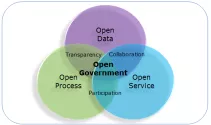
• The GDPR introduces new requirements on how to collect and process personal data.
• Informed consent can be hard to achieve for users in general and even harder for older adults with cognitive decline. Evaluating the consequences of data processing can increase the difficulty.
• Artificial Intelligence (AI) can process trivial data elements to generate sensitive data such as political preference or sexual orientation.
• Some of the existing AI services have a requirement to share the data with a third party, spreading the data wider, and thus making informed consent harder.
• Access to large amounts of personal data is important both to train AI and to reach large markets. European SMEs generally do not have access to such data.
• Most SMEs cannot compete with services delivered at zero cost. Are there ways for the GDPR to give European SMEs better access to the market of online services?
Categorisation
Attachment
Shared on





